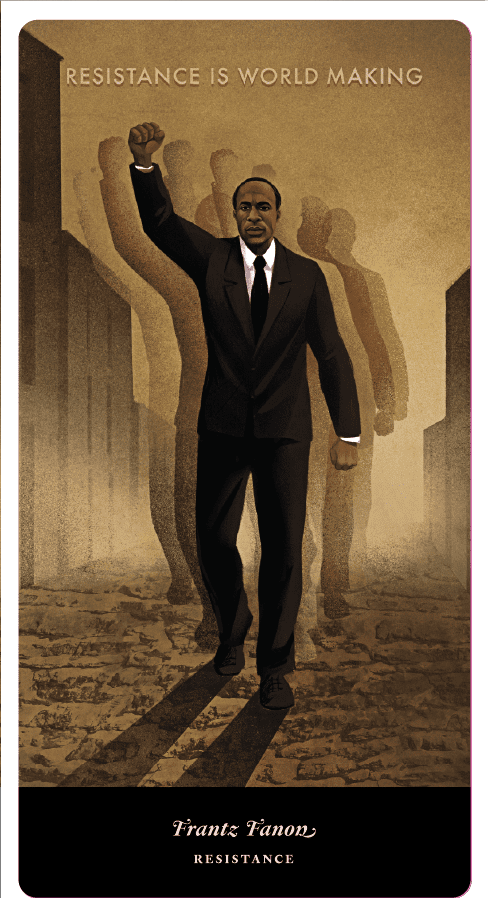Franz Fanon | USA Resistance is World Making 1925 MARTINIQUE 1961
Franz Fanon is a philosopher of resistance. He asks us to decolonize our minds by revolting against the cultural forces that form and deform our world and self-image. Growing up under French colonial rule in Martinique, and later fighting with the Arabs against French colonialism in Algeria, Fanon experienced the debilitating effects of racism and colonialism first-hand. As a psychiatrist, he documented how the myths of White supremacy became embodied in his patients’ everyday thoughts and practices. Feelings of inferiority, trauma, and even madness are the products of racist and colonial oppression that render the oppressed incomprehensible to themselves. This incomprehensibility, Fanon believes, is the impetus for rebellion. “The end of race prejudice begins with a sudden incomprehension.” Lacking the soil from which to understand one’s self positively and with dignity, the oppressed must rebel. A de-rooting of the ideas that form the colony of the oppressed mind, together with a violent restructuring of society, is how the oppressed can win their dignity. Fanon does not think it possible to reform a system built on the exploitation and oppression of people of color.


1 thought on “Fanon”
Fanon advocates for violence. He is not a philosopher like the others on this list. He’s a violent reactionary and his writing encourages the murder of men, women, and children so long as you label them “oppressors” first. And oppressors is a wide term for him. He dispenses with all notions of morality. Pol Pot’s ideology and Fanon’s obsession with violence share much overlap. Fanon is writing the language of atrocity while Pol Pot showed the world what actively practicing Fanon’s ideology looks like. Fanon’s presence in these cards diminishes the deck as a whole. He is a poor writer, prone to hyperbole, and grand unsupported claims. From a purely philosophical evaluation, Fanon reads like an angry college freshman who has not yet learned how to craft coherent arguments that can stand up to scrutiny. He frequently contradicts himself and provides little for the discerning reader to find compelling. He isn’t a philosopher by any stretch of the definition. He’s just an angry man ranting about how violence is the solution to complex problems. He has no business being on this list of amazing thinkers.